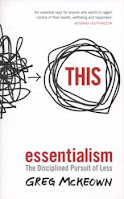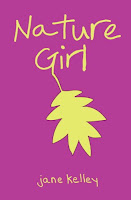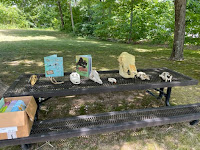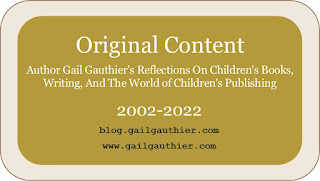I finished last weekend's 48-hour
#MGReadathon on Sunday afternoon having completed 4 books. Since I only read 7 back in 2006 for the original
48-Hour Book Challenge, I was pretty satisfied, because I didn't read as intently this time as I did then. While there definitely are some negatives to have taken part of this in terms of using my time (which you can be sure I'll be discussing here at some point), I interacted with some new people both here and on Twitter, got one book off my TBR shelf that had been there for years, will be updating my Goodreads blog with this post, and will be a few books ahead on my Goodreads goal for this year. So those are all pluses. Right?
Books Read
I Survived The Nazi Invasion, 1944 by
Lauren Tarshis
If you grew up on old WWII movies and have read a lot of WWII books over the years, this is a pretty traditional WWII story. It's a pretty traditional
short WWII story with plenty of narrative drive and a main character who comes out of his nightmarish experience as well as anyone possibly could. This is the book from my TBR shelf and the first in the
I Survived series that I've read. I'll be holding onto it for my personal library I maintain for young readers in the family.
Nature Girl by
Jane Kelley
Years ago I started reading a book that began the same way
Nature Girl does--a girl in Vermont with some conflict with her family accidentally ends up on the Appalachian Trail. I stopped reading it, because I didn't like it. How likely is it that I've stumbled upon a totally different book in which the same thing happens? If the book I didn't like back in the day was
Nature Girl, it has improved a
lot over the years.
I am not a long-haul hiker by any means. Fourteen miles is my top hike, on a relatively flat rail trail, and we took a break in the middle to go to a local library to use the bathroom. Nonetheless, I very much liked this tale of a totally unprepared eleven-year-old girl who gets lost near her family's southern Vermont rental and stumbles onto the Appalachian Trail. She learns from a passing hiker that Mt. Greylock in Massachusetts, near where her best friend is spending time with her grandmother and sick mother, is just 30 miles that-a-way and decides, what the hell, she's having a lousy time vacationing in Vermont. She's going to get to Mt. Greylock and call her friend.
Now, if this is the book I gave up on years ago, I might have been turned off early on by the talk of the Appalachian Trail in Vermont. Because I knew that the Long Trail is Vermont's trail. However, a little research this time showed that the Appalachian Trail does, indeed, run west northeast through Vermont while the Long Trail runs north and south. And the two of them join for a while. I mention this in case among my hordes of readers there is someone else thinking, Wait. No. That's wrong. It's the Long Trail in Vermont. They're both there!
Once I knew that, I totally bought in to Megan's experience. The pieces of the Long Trail I've been on were similar to what Megan was seeing. (That shelter!) The people she ran into were similar to people I've read about in hiking articles. Yes, it does push the envelope to think this kid could make it and didn't throw in the towel and seek help. But we believe kids in books catch criminals and fight magical monsters, so why not this?
Also, this book actually is funny. Lots of times with middle grade books we're told they are funny, and I get the feeling that at various points something is supposed to be funny, but it isn't. In this one the humor works.
A Place to Hang the Moon by
Kate Albus I've been hearing good things about this book, and they're well-deserved. If you've spent twenty years reading children's books about the evacuation of children from London during World War II, a lot of what happens here will be familiar. However, they won't be familiar to today's child readers and that material is put together very well. This is a very well-written book with a cozy vibe in spite of its war setting.
Just Be Cool, Jenna Sakai by Debbi Michiko Florence
 I chose this book because Debbi Michiko Florence and I are Facebook friends. It's a middle school romance with a bit of a Pride and Prejudice thing going on. Romance isn't the best genre for me to be reading and reacting to. As a general rule, I need my romance integrated with something else, mystery or scifi, for instance. Just Be Cool does have a student journalism thread that I appreciated.
I chose this book because Debbi Michiko Florence and I are Facebook friends. It's a middle school romance with a bit of a Pride and Prejudice thing going on. Romance isn't the best genre for me to be reading and reacting to. As a general rule, I need my romance integrated with something else, mystery or scifi, for instance. Just Be Cool does have a student journalism thread that I appreciated.
The book will be sticking with me, though, because it left me with two things to ponder:
- This tween age is bizarre. These kids are old enough to have boyfriends but not old enough to use the stove when they're alone in the house. They have boyfriends, but they spend their evenings hanging with their boyfriend and groups of friends at somebody's house with their parents. I'm not saying there's anything wrong with any of that, but what does having a boyfriend even mean at this point in life? Does just being able to say you have a boyfriend (or girlfriend) provide some kind of validation? (Of course, it does, Gail! What's wrong with you?)
- This is not the first book I've read recently in which the main character had a close friend or more than one. These protagonists had to worry about whether or not they were spending enough time with their friends and what should they be doing with their friends and is their friend upset with them? This seems like so much effort. You read a lot about how difficult it is for adults to make friends. Maybe it's because nobody past middle school has time for all the work that's involved.
That last thought is going into something I've been working on, in my head, anyway. So thank you, Debbi and Jenna.




.png)








.png)







